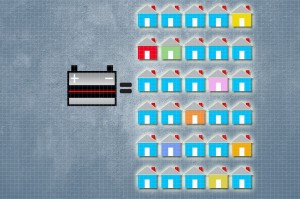We all know the health risks that cigarette smoking can lead to, but with over one billion smokers internationally – according to the researchers at the World Health Organization (WHO) – smoking cigarettes has also become an environmental issue. However, a group of scientists in South Korea have discovered a way to transform this waste into a positive by converting the cigarette butts into green energy in a one-step process.
This from Smithsonian:
In a recent paper in the journal Nanotechnology, the researchers demonstrated a one-step process for turning used cigarette filters (the main component of butts) into a material that can be used to store energy in supercapacitors—components that can be used alongside batteries in the electrical grid, consumer electronics and electric vehicles.
Read the full article here.
While it is unlikely that the supercapacitors will match the storage abilities of chemical-based batteries any time soon, the scientists are optimistic about the potential of this process. With trillions of cigarette butts being tossed out each year, there is no shortage of materials to build billions of supercapacitors.
Find out more about the evolving science of supercapacitors in ECS’s Digital Library.



